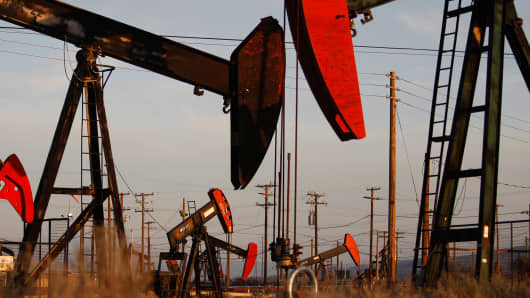The recent rally in oil prices could throw cold water on the economies of countries that consume a lot of crude. But oil producers could finally get a badly needed break.
The sharp drop in global oil prices last year had major producers such as Russia and Venezuela scrambling to make up for lost revenue. It's anyone's guess where oil prices are headed over the longer term. But a recent rally has some forecasters tweaking their models to see what a sustained price recovery might look like. (Tweet This)
Got a question about business or personal finance?
Send it along to Explains@cnbc.com
Every week, the world of business and finance brings news that seems designed to confuse most of us. So CNBC Explains wants to hear from you. Each week, we'll answer as many of your questions as we can. (Like most readers, we'd also like to know your first name and where you're from. We may also edit your questions for space.) Any question is fair game.
From a low in the mid-$40s in January, internationally traded Brent crude prices have bounce back and are approaching $70 a barrel.
"If sustained, higher oil prices would reduce the gains in consumer real income and spending that we currently forecast," according to Adam Slater, a senior economist at Oxford Economics. "And also risk blunting the boost to investment that we forecast based on reduced business costs."





